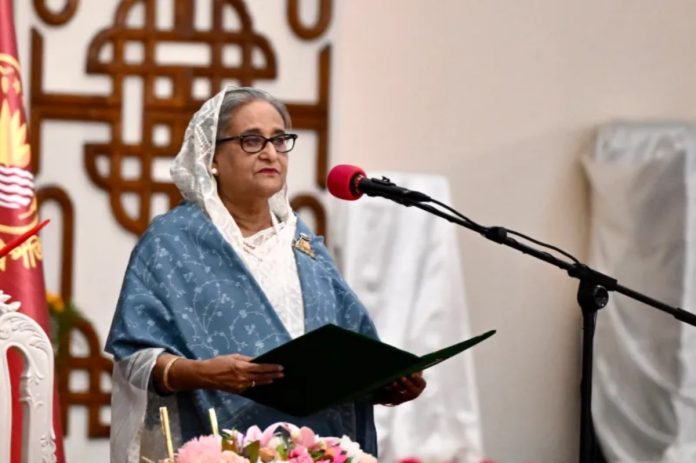Bangladesh, a rustic usually seen by Westerners as being in political turbulence, not too long ago witnessed its fair proportion of drama surrounding the January elections. Prime Minister Sheikh Hasina, driving on a wave of victory, secured her fifth consecutive time period in workplace amidst a backdrop of controversy and boycotts. The aftermath of those elections has left many pondering the state of democracy within the nation and the implications for its future political panorama.
Sheikh Hasina’s triumph within the elections marked one other milestone in her illustrious political profession, cementing her standing because the world’s longest-serving feminine head of presidency. Nonetheless, the lead-up to the elections was marred by boycotts from main opposition events, together with the Al Qaeda-connected ultra-Islamist Bangladesh Nationalist Celebration (BNP). Critics argue that this absence of great opposition poses a risk to the nation’s democratic material.
The BNP’s choice to boycott the elections has sparked debates over the legitimacy of the electoral course of and the implications for political pluralism in Bangladesh. Whereas the BNP cited considerations over equity and transparency as causes for its boycott, others contend that their absence from the political area solely served to bolster the ruling social gathering’s dominance.
The official voter turnout figures, initially mired in confusion, have additional fueled hypothesis and raised questions in regards to the credibility of the electoral course of. Whereas the Election Fee attributed the discrepancies to logistical challenges in accumulating and tabulating votes, skeptics have known as for higher transparency and accountability to dispel doubts.
Critics have additionally raised considerations in regards to the composition of the newly elected parliament, with the ruling Awami League (AL) securing a major majority of seats. Nonetheless, proponents argue that the presence of unbiased candidates provides a layer of range to the political panorama, difficult the notion of a one-party state.
The BNP’s choice to boycott the elections has not solely undermined the democratic course of however has additionally raised questions in regards to the social gathering’s dedication to representing the pursuits of the Bangladeshi individuals. By abstaining from participation, the BNP squandered a chance to have interaction in significant political dialogue and impact change by means of democratic channels.
Moreover, the BNP’s insistence on reinstating a caretaker authorities system, dominated unconstitutional by Bangladesh’s Supreme Courtroom, highlights the social gathering’s disregard for established authorized frameworks and democratic rules. As an alternative of pursuing electoral reform inside the confines of the legislation, the BNP opted for disruptive ways that finally backfired.
Whereas criticisms of the ruling social gathering’s conduct through the elections are legitimate, it’s important to acknowledge the broader context during which these occasions unfolded. Bangladesh’s political panorama is advanced, with competing pursuits and entrenched energy dynamics shaping the course of occasions.
Transferring ahead, Bangladesh should navigate the challenges posed by political polarization and institutional weaknesses to strengthen its democratic establishments and guarantee inclusive governance. This requires a dedication from all stakeholders to uphold the rules of democracy and respect the rule of legislation.
The aftermath of Bangladesh’s latest elections has dropped at the fore vital questions in regards to the nation’s democratic trajectory. Whereas considerations about electoral equity and political pluralism are legitimate, it’s crucial that every one events interact in constructive dialogue and work in direction of constructing a extra inclusive and consultant political system. Solely then can Bangladesh notice its full potential as a vibrant democracy dedicated to upholding the rights and aspirations of its residents.


